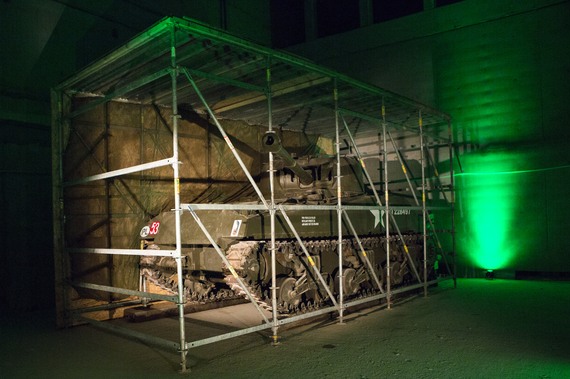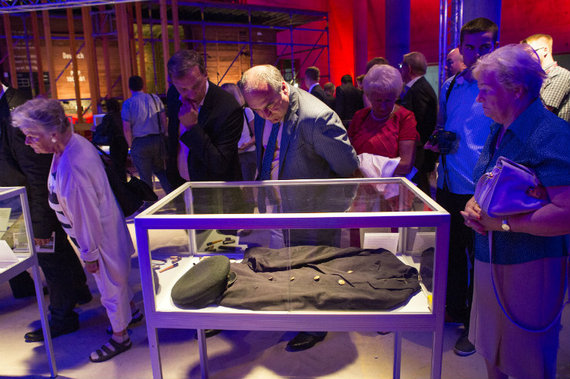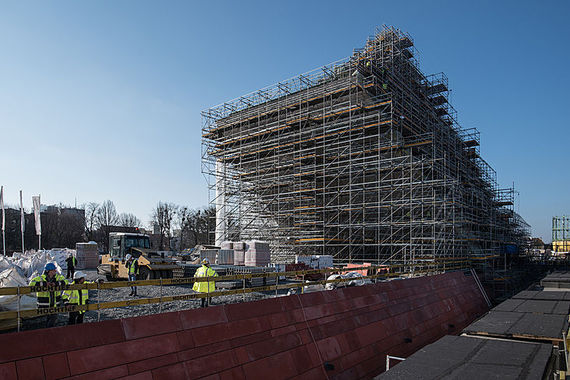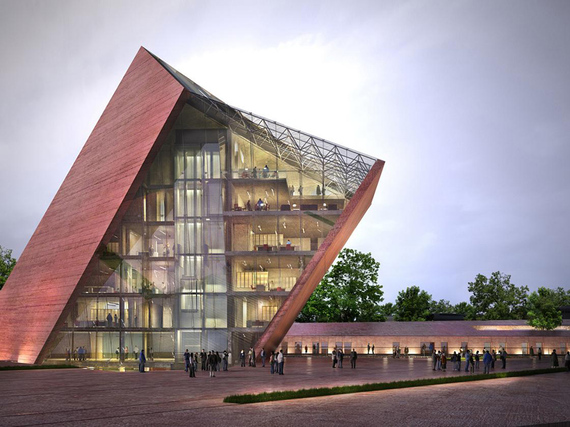Re-Arranging History
"It's a part of the present government's attempt to rewrite history."
"It's one of the pillars of every authoritarian or totalitarian regime that they want to reorder the past to their own fantasies."
Norman Davies, British historian of Poland
"The museum is the only attempt in Europe or really in the world to actually present the war as international history."
"Poland is over-represented in this international museum, which is not surprising, given that the museum is in Poland."
Timothy Snyder, historian, Yale University
"[The Museum of the Second World War does not emphasize] enough stress on the Polish point of view."
"Our obligation is to maintain a conversation about our sacrifice."
"Poland is associated mainly with the Holocaust. The world knows about the Warsaw Ghetto uprising on April 19, 1943, but it doesn't recognize the Warsaw Rising that took a much bigger toll."
"It [the Museum] has enough [funding] for opening and for at least for six months. After that period, we'll see."
Piotr Glinski, Polish Culture Minister
| The Museum of the Second World War |
The new, right-leaning government of Poland has had thoughts about the soon-to-be-opened Museum of the Second World War. It plans to alter its orientation. To align it with the Battle of Westerplatte, the 1939 battle that pitted Poland's military against that of the Nazi regime's and which Poland lost, leading to German invasion and occupation. There is no actual Battle of Westerplatte Museum, but there is the name of the Battle of Westerplatte Museum, and the new Polish culture ministry has plans to combine them, giving the focus to the battle at the almost-completed Museum, re-focusing it away from a more generalized, international-flavoured museum, which it was meant to be.
The museum has been a decade in the making, when during a period of optimism the design and dedication of the museum was all mapped out. It was to have described a devastated world that Europe had become, achieving a focus transcending mere national boundaries. The museum's collection is inclusive of Soviet and American tanks, it includes keys to the homes of Jews who were murdered by their Polish neighbours, it has flags in its possession identifying the Polish Home Army which courageously fought the Nazis, and it also features an Enigma encoding machine.
The state-financed institution is undergoing a second-thought for its focus, taking away the global, international perspective and the details that emphasized the scope of the destruction in human life along with poignant mementos which describe the utter devastation that had overtaken the human spirit under the black miasma of the belching chimneys of the crematoria meant to solve the "Jewish problem" for all time, as an enduring symbol of proud Nazi Aryan values and ideology. Poland is now ensnared anew in political and cultural conflict.
At a cost of around $114-million to date, and five years of construction, the January opening spectacular may be delayed. And the museum can look forward as well to the prospect of the government cutting off its funding, if it presents to the public and the international community as it was originally meant to. The culture minister feels strongly that a focus on the first battle of the war must be front and centre, more reflective of heroic Polish self-defense, mowed down by an indestructible behemoth of a monstrous juggernaut.

The exhibition has already been contracted, many exhibits ready, like the tank who was installed in an underground part of the museum. Photo: Jerzy Pinkas

There was an open day on the construction site in September 2015. Today the project is much more advanced. Photo: Jerzy Pinkas
Sections are meant to be devoted to the French and Danish Resistance. Should the proposed merger become reality, Pawel Machcewicz, director of the Museum of the Second World War, hopes the opening could take place in late January. He feels that the government has only committed to providing half of the museum expenses meant to cover costs for the coming year of 2017. The culture ministry assures that the contents of the museum will be preserved and the planned opening will take place on time. As for financial support, it may or may not be forthcoming.
The reaction to this new direction -- emanating from a source that cannot be denied its control and insistence --from some families who had donated heirlooms was that they would be withdrawn, should the merger proceed. So reaction to the government's plans are perhaps predictable, and obviously hostile to those plans. "They thought they could do a blitzkrieg, but now we have the Battle of Stalingrad", wryly observed the museum director, Mr. Machcewicz.
Labels: Conflict, Holocaust, Museum, Poland, Second World War




<< Home